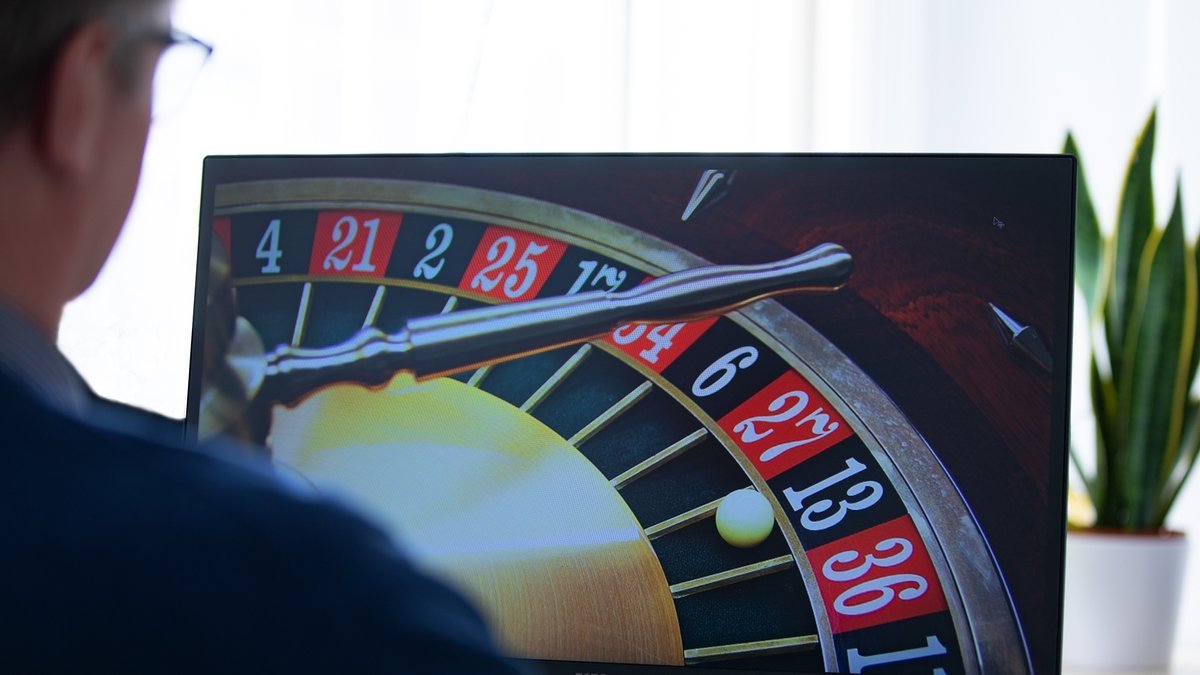Group therapy for affected adults starts in the new year.

Danger of addiction: gambling is possible online almost everywhere. Copyright: Karin Kaiser / MHH
Lotto, soccer betting, slot machines, poker and casino - the range of games of chance on offer, not least on the Internet, is enormous. And it is popular. According to the latest "Gambling Atlas 2023" published by the Federal Drug Commissioner, 30 percent of people in Germany took part in gambling in 2021. However, these games have a high potential for addiction: of all gamblers, 7.7% have a gambling disorder, which means they are addicted. "There are self-help groups for these people, but hardly any therapy services. This is particularly true for adults," explains Dr. Alexander Glahn from the Department of Psychiatry, Social Psychiatry and Psychotherapy at Hannover Medical School (MHH). To close this gap, the clinic is now offering a new outpatient treatment program for adult sufferers. It will start in January 2024.
The greater the offer, the greater the risk of addiction
Gambling addiction occurs in all age groups and social classes. However, it is particularly common in the population group of men aged between 20 and 30. The disease develops gradually and increasingly dominates life. It can destroy families and lead to financial ruin. Against this backdrop, PD Dr. Glahn takes a rather critical view of the 2021 amendment to the State Treaty on Gambling: one of the changes is that online poker, online casinos and online slot machines can now also be permitted. Previously, online gambling was prohibited. With online gambling, users now have the opportunity to gamble anytime and anywhere, for example on their cell phone. "The consequences of the change in the law are difficult to assess so far," explains the psychiatrist. "However, there is a fundamental correlation between the availability of gambling and the frequency of addiction. If the supply increases, the risks of addiction also increase."
Participants learn strategies for self-control
People who are addicted to gambling tend to suppress their addiction problem. They are often reluctant to accept professional help. This is where the low-threshold therapy offered by Dr. Glahn and his team of psychiatric and psychological specialists comes in. It is intended for people at all stages of the disease, including those at an advanced stage. In group therapy, the men and women affected learn to develop strategies for self-control and to reduce their behavioral excesses.
The therapy consists of eight modules of so-called metacognitive training. "The training is about uncovering and correcting your own distortions in thinking," explains psychologist and group leader Christiane Kraft. At the meetings, participants deal with their perception of probabilities and their attribution style, for example, i.e. attributing causes for successful or unsuccessful actions. The outpatient therapy for adults takes place once a week and lasts around eight weeks. The program is also accompanied by a scientific study. However, participation in the study is not mandatory.
Registration at the psychiatric outpatient clinic
Anyone interested in diagnosis and treatment for gambling addiction can present themselves at the MHH Psychiatric Outpatient Clinic without making an appointment in advance with a referral from their GP; Mondays, Wednesdays and Fridays from 9.00 to 11.00 a.m., telephone (0511) 532-9190.
Text: Tina Götting